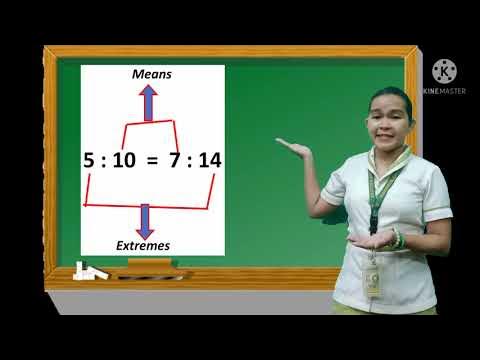Inquiry into Teaching and Learning Classroom Observation Low
Summary
TLDRIn this engaging classroom session, students explore percentages through interactive activities, including a bingo game. The teacher facilitates understanding by introducing three strategies for calculating percentages: decimals, proportions, and benchmarks. As students collaborate in groups, they solve problems related to a given number, 200, and later apply their skills to the number 50. The session emphasizes hands-on learning and peer interaction, culminating in an exit card exercise where students demonstrate their understanding of percentages. This lively environment fosters engagement and reinforces mathematical concepts in a fun and practical manner.
Takeaways
- 😀 Students are encouraged to glue important papers into their spirals to keep their work organized.
- 🌟 The lesson focuses on calculating percentages using three strategies: decimals, proportions, and benchmark percentages.
- 📝 The teacher emphasizes the importance of collaboration by asking students to explain their reasoning to each other.
- 🎲 A bingo game is used as a fun activity to reinforce the concept of percentages through practical application.
- 🔢 Students learn that 100% of a number is the number itself, while 50% is found by dividing the number by two.
- 📊 The importance of understanding 10% as moving the decimal one place to the left is highlighted for calculating percentages.
- 💡 Benchmark percentages are used to simplify calculations, helping students make quick estimations.
- 🤔 Students are encouraged to ask their peers for help and clarification during problem-solving activities.
- 🎉 The teacher celebrates student achievements and encourages participation by offering small prizes for winning bingo.
- 📅 The lesson concludes with students working on a separate assignment related to global winds, reinforcing the importance of continuous learning.
Q & A
What is the main activity planned for the class session?
-The main activity planned for the class session is a bingo game that involves calculating percentages of various numbers.
What materials do students need for the class?
-Students need their spirals, glue, binders, and the white piece of paper provided by the teacher.
What strategies are mentioned for finding percentages?
-The three strategies mentioned for finding percentages are using decimals, proportions, and benchmark percents.
How does the teacher suggest finding 10% of a number?
-The teacher suggests finding 10% of a number by moving the decimal one place to the left.
What example does the teacher use to illustrate calculating percentages?
-The teacher uses the number 200 to illustrate calculating various percentages, such as 100%, 50%, 10%, and 5%.
What is the significance of moving the decimal point in percentage calculations?
-Moving the decimal point in percentage calculations signifies division by 10 or 100, which helps in finding the percentage value of a number.
How do students verify their bingo numbers during the game?
-Students verify their bingo numbers by placing chips on the corresponding numbers called out by the teacher, aiming to form a line or pattern to win.
What do students need to do when they receive their strips for the bingo game?
-When students receive their strips, they need to write down the percentages corresponding to the given numbers and then find a group to play bingo.
What happens when a student gets a bingo?
-When a student gets a bingo, they yell 'Bingo!' and are eligible to win a prize, such as candy.
What is the exit card activity about?
-The exit card activity involves students writing their secret code name and calculating a percentage based on a provided number, which is then collected by the teacher.
Outlines

This section is available to paid users only. Please upgrade to access this part.
Upgrade NowMindmap

This section is available to paid users only. Please upgrade to access this part.
Upgrade NowKeywords

This section is available to paid users only. Please upgrade to access this part.
Upgrade NowHighlights

This section is available to paid users only. Please upgrade to access this part.
Upgrade NowTranscripts

This section is available to paid users only. Please upgrade to access this part.
Upgrade NowBrowse More Related Video

Demo Teaching in Math (Ratio and Proportion)

Simulasi Mengajar Muatan IPS SD dengan Model Talking Stick

Model Course Review Horay Berbasis Diferensiasi

METODE PEMBELAJARAN KARTU BERPASANGAN l MAKE A MATCH

PEMBELAJARAN BERDIFERENSIASI PROSES | Bahasa Inggris Kelas 7 | Dita Wulansari, S.Pd.Gr.

ESL - Teaching English in China: Grade 1 ( Demo lesson)
5.0 / 5 (0 votes)